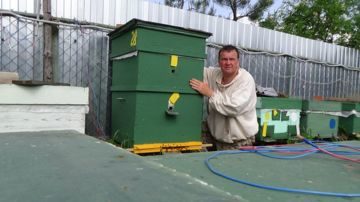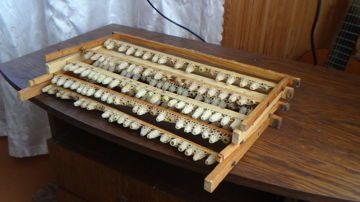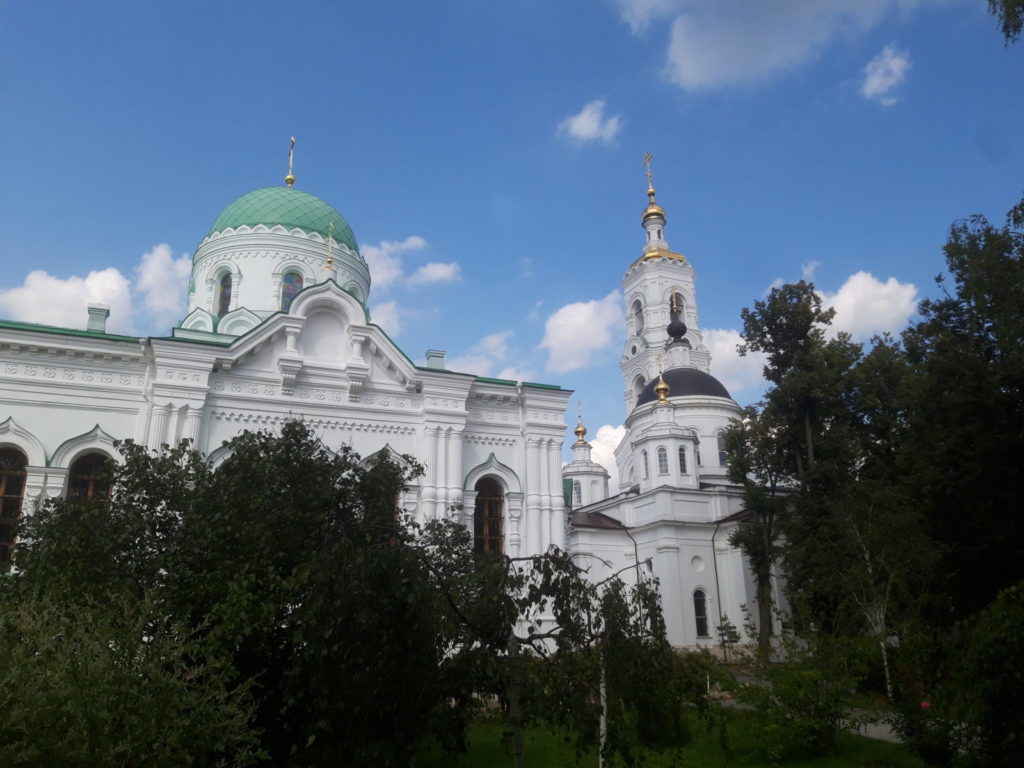24th August Back to nature tour (Organic Bee Farm: Royal Jelly & Honey + Monastery visit)
Honey is the only natural “sweetener” that people have consumed for thousands of years,  as is. In 2014 ceramic jars of honey were found in Georgia that were dated at 5500 years old! When Russia was subjected buy the Golden Horde, Russians paid tribute to the Mongols with honey, as the invaders really valued this wonderful product. Then a kilo of honey was equal value to a kilo of silver.
as is. In 2014 ceramic jars of honey were found in Georgia that were dated at 5500 years old! When Russia was subjected buy the Golden Horde, Russians paid tribute to the Mongols with honey, as the invaders really valued this wonderful product. Then a kilo of honey was equal value to a kilo of silver.
So, in 21st century Moscow, is it possible to collect genuine honey from the Moscow area? Yes. Moscow honey is classified as “wild honey” because of the indigenous flowers and bushes. Bees start working in spring and they go to willow, coltsfoot, dandelion, apple, pear, plum, cherry, wild ash. Later during the seasons, raspberry, rose bay, linden, sow thistle, burdock, hogweed is pollinated. And, of course, honey-fall. If the weather is hot honey-fall is produced from the liquid that comes from the plants and insects. It contains a huge number of microelements and various salts; in Europe such honey is twice as expensive as normal honey.
The “wild honey” collected in Moscow area is of very good quality. It is as it always was, an ancient desert and an effective medicine. People have always loved honey and indeed it could replace half of the home first aid kit.
From honey comes ‘royal jelly’ which is purported to have amazing health properties. Ancient records reveal that royal jelly was used by the early Egyptians. It was one of Cleopatra’s beauty secrets. Even older civilizations used it. It may have been one of the vitality factors accounting for the strength and beauty of Egyptian royalty. The ancient Greeks took it to increase their physical strength. Oriental rulers claimed that royal jelly helped them live longer and remain sexually potent even in old age.
However, not all honey & royal jelly is equal and not all is “natural”? The Russian market is flooded with royal jelly from China and Thailand. There the bees are fed with sugar and soy flower. This boosts the yield (and profit) 10 to 15 times more than organic produce, but the properties of the royal jelly are changed…
We are going to visit an Organic Beekeeping Farm. Here you will be able to taste the wonderful, freshly made honey and stock up on supplies for the long winter.
The flowers surrounding the farm provide a great selection of nectar for the bees. The Farm rule is the bees only get what they collect from the flowers: It is a 100 % organic Farm. There are no chemicals, no antibiotics, no sugar or soy used in the making of the honey. Neither is the honey warmed or filtered. Al the work is done manually.
The farm is unique and special in that it is the only producer of royal jelly in Moscow area. This is a small family farm consisting of 150 hives owned and managed by an individual who takes great pride in his product and its’ health-giving properties.
Our bee keeper is even very careful of what the other organic farms use. He has his own methods to ensure the highest quality of the royal jelly and honey. He is very proud of his farm and methodology. For example, each royal jelly producing family is serviced by 2 additional families (hives). He doesn’t even have an opportunity to get any bee-bread or flower dust (pollen) as everything is used up to make sure the bees are fed properly.
This is a great opportunity to see something very different in Moscow and to take home something helpful and healthy. We have the chance to buy the 100% organic royal jelly and honey. You will learn how to look after your health and prolong your life, using honey.
During our tour we will have a honey, flower dust and propolis (bee-glue) degustation. You will learn about the life of the Bee Family, its hierarchy and its types; about the ways the bee’s bodies work and how the flower nectar is converted into honey as well as about some other interesting facts from the bee’s life.
The Farm is approximately a 2h drive (120 km) from Moscow subject to traffic.
On the way there there is also a very beautiful Monastery. We will take it as an opportunity to extend out Tour enjoying the peace and quiet of the location; the monks here collect herbs and prepare herbal teas with various medical properties, they live lives vere close to Nature. Equally this is an opportunity to have set lunch.
The price includes transport, the 1.5-hour tour of the Farm, tour of the Monastery, simple lunch at the Monastery.
Cost: 5500 rub for adults and 4000 rub for children under 14 years old.

